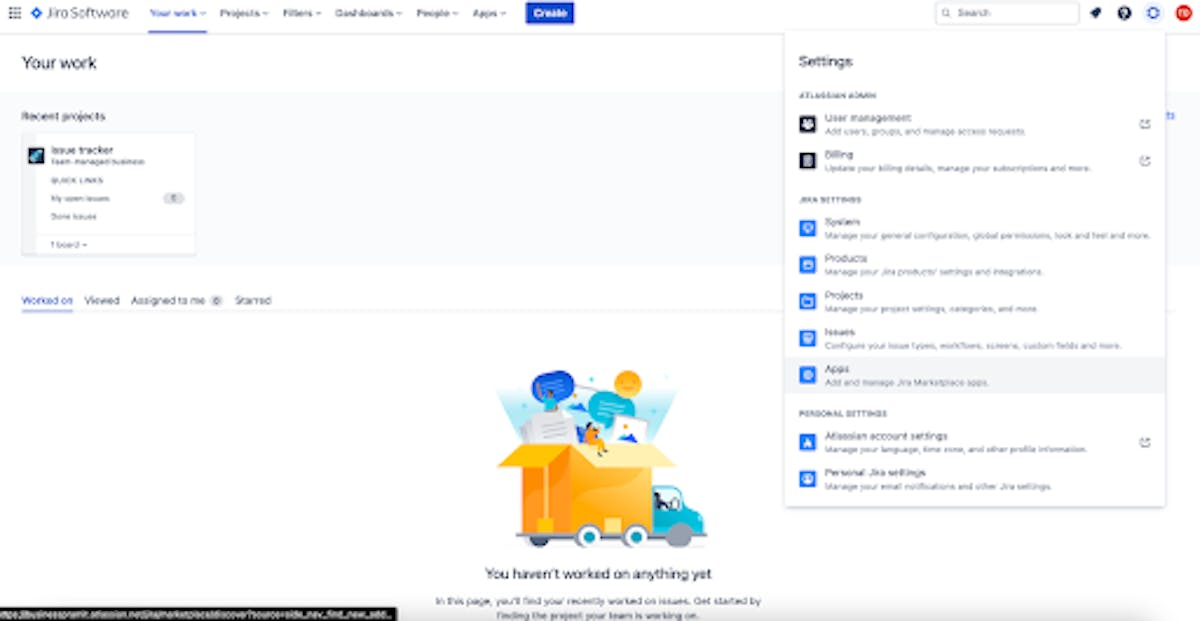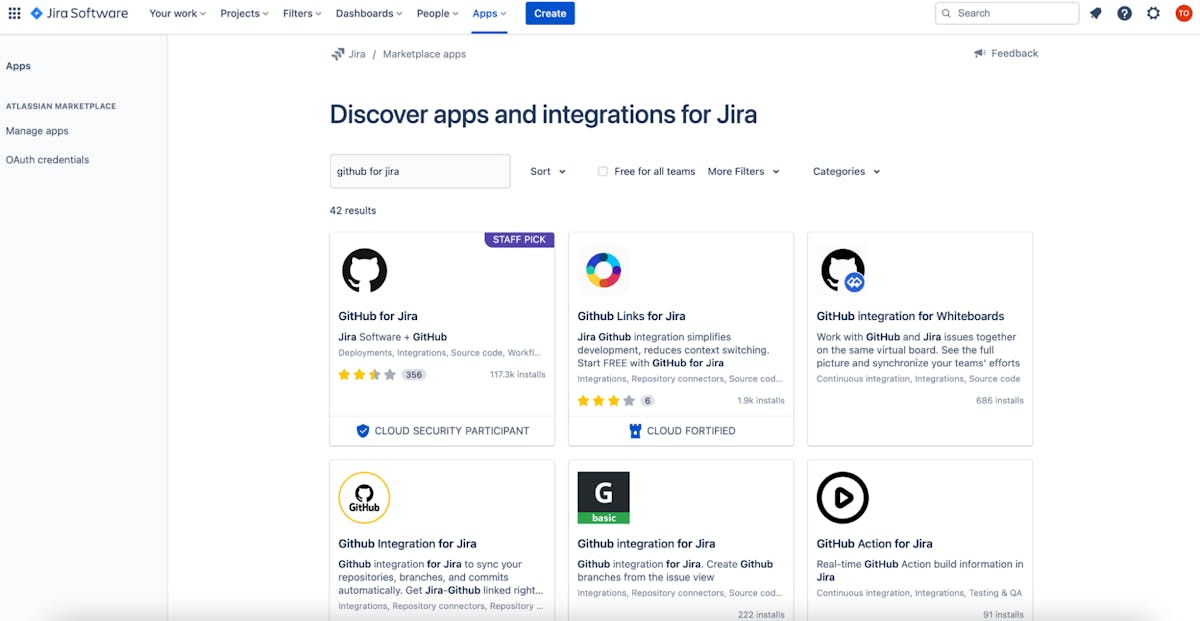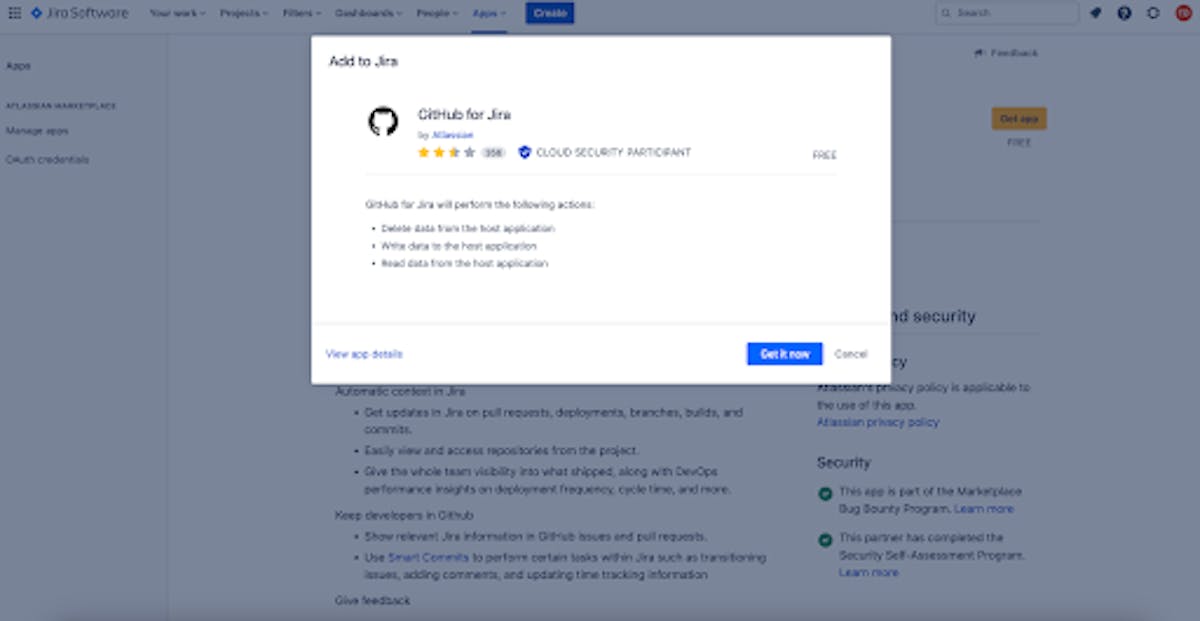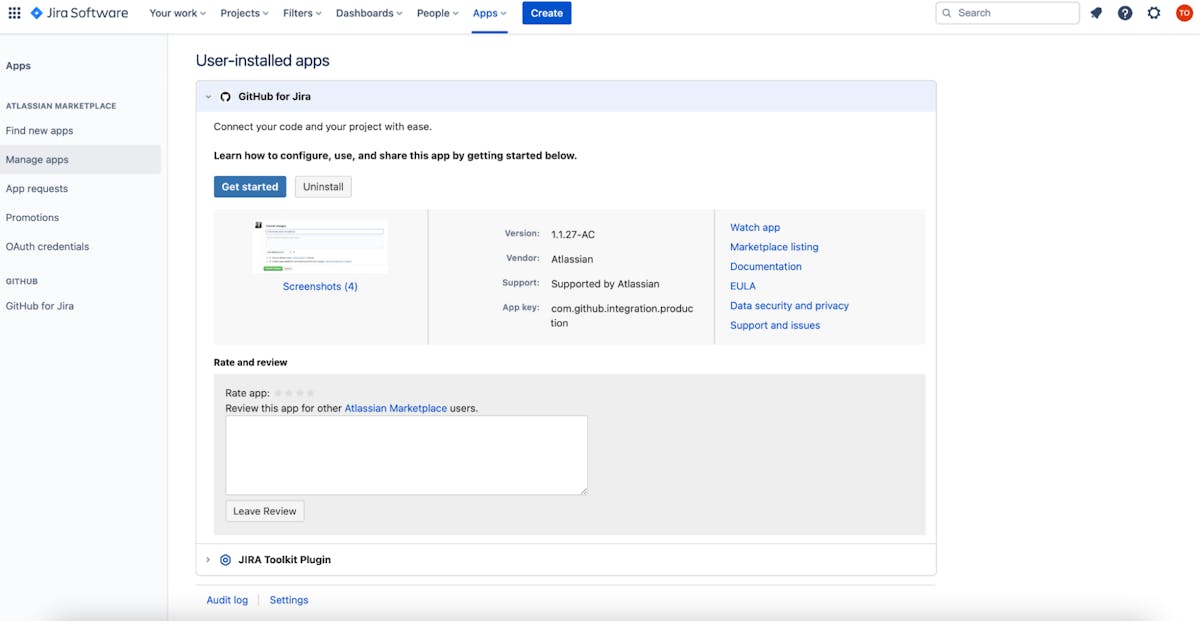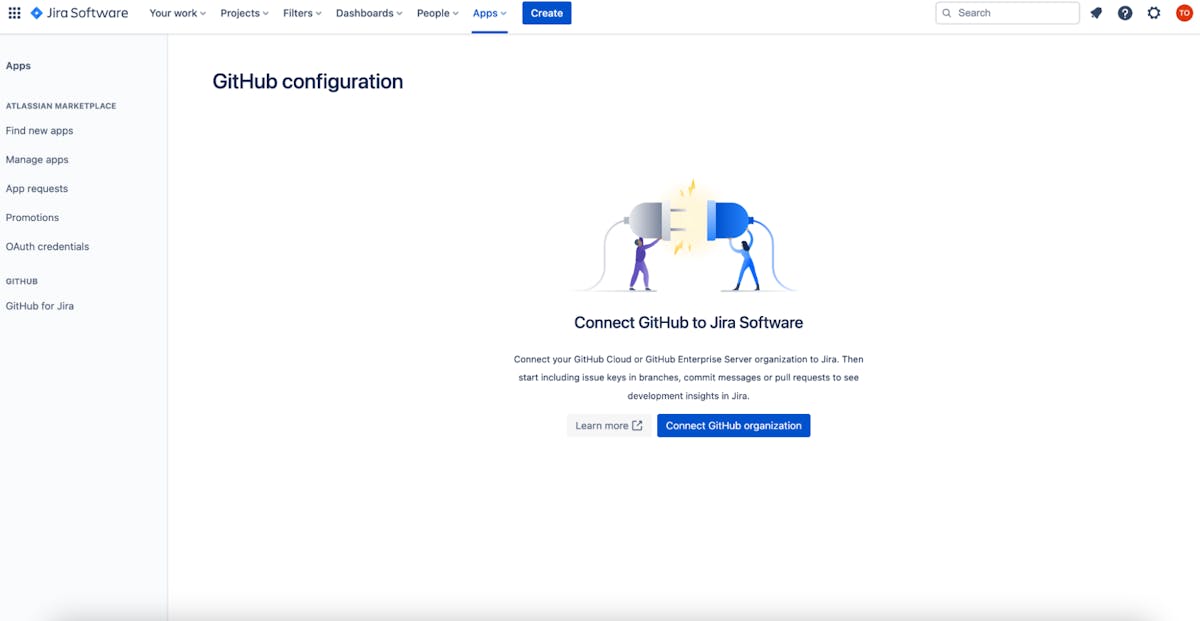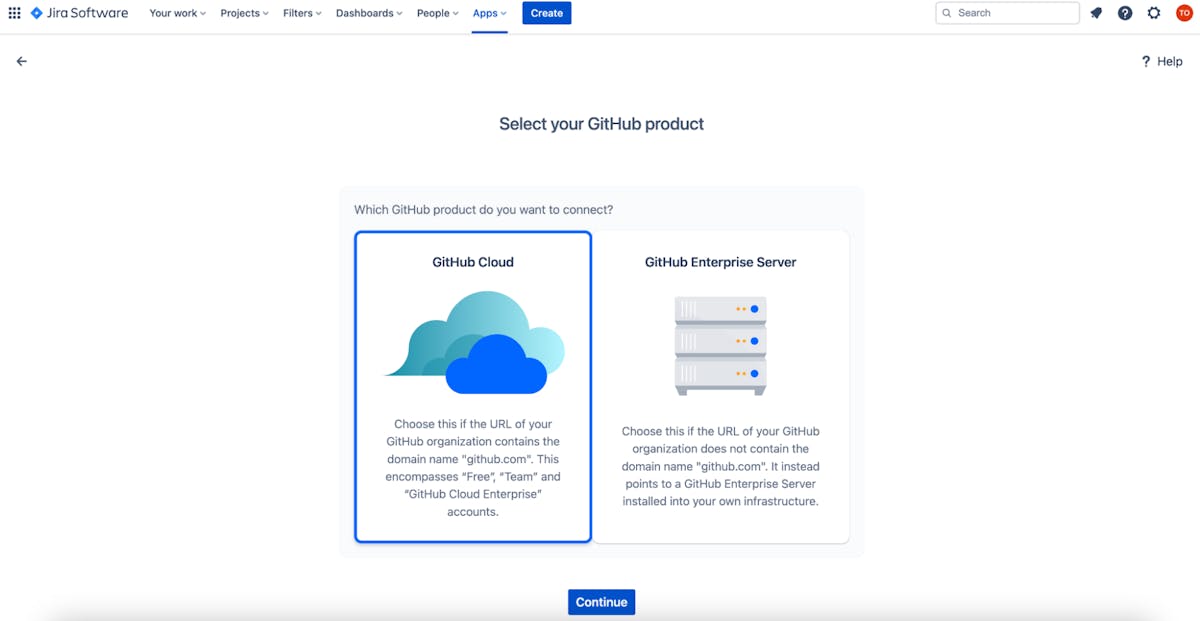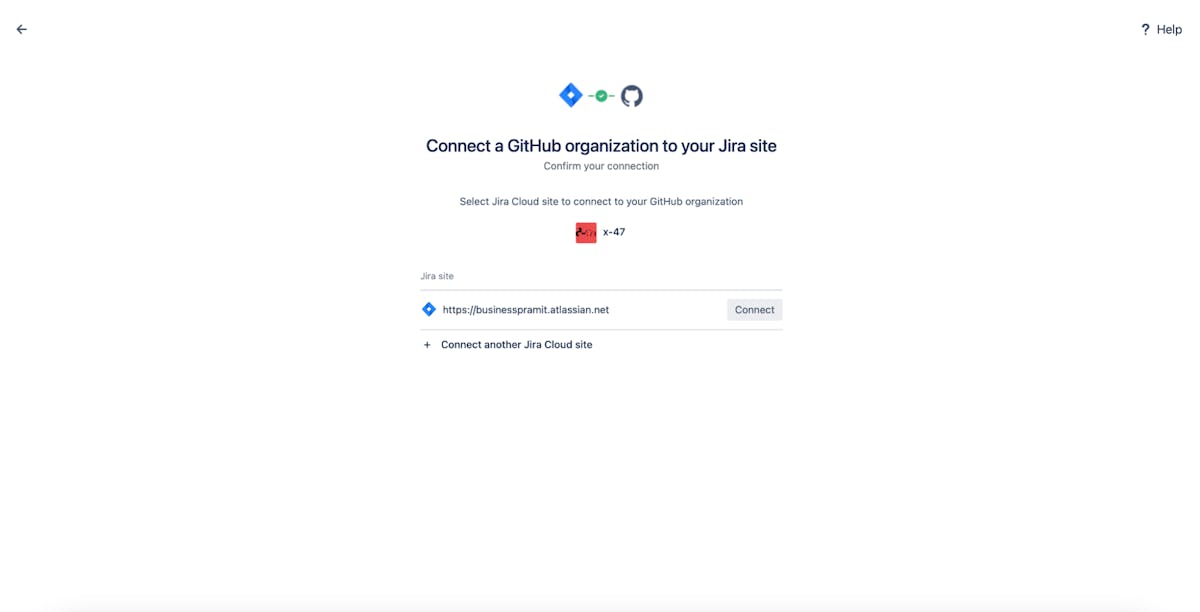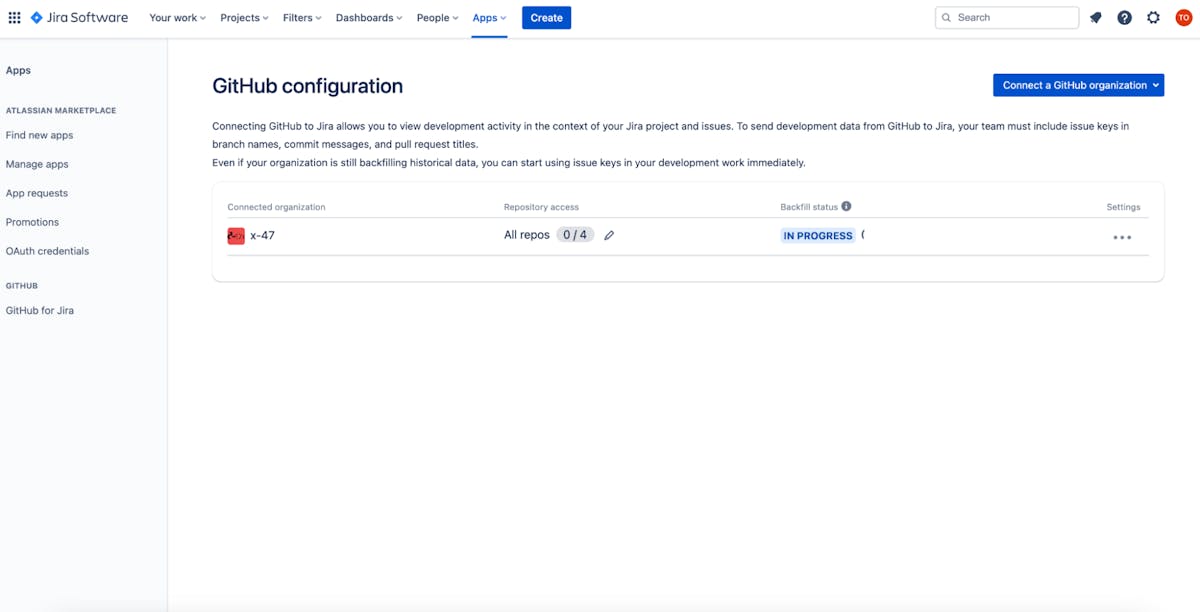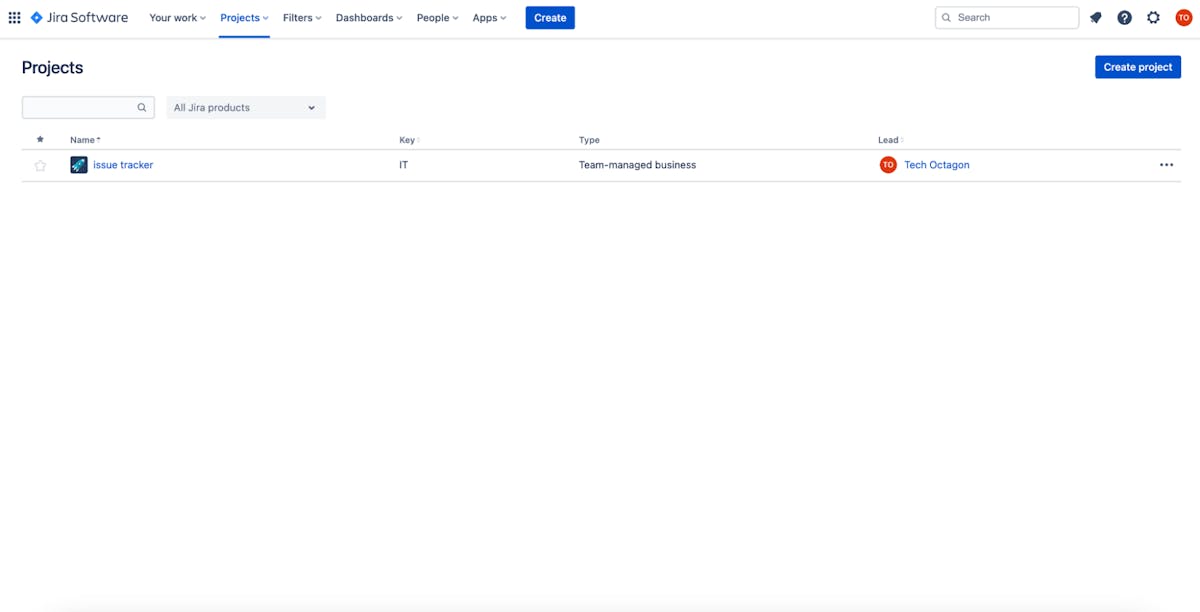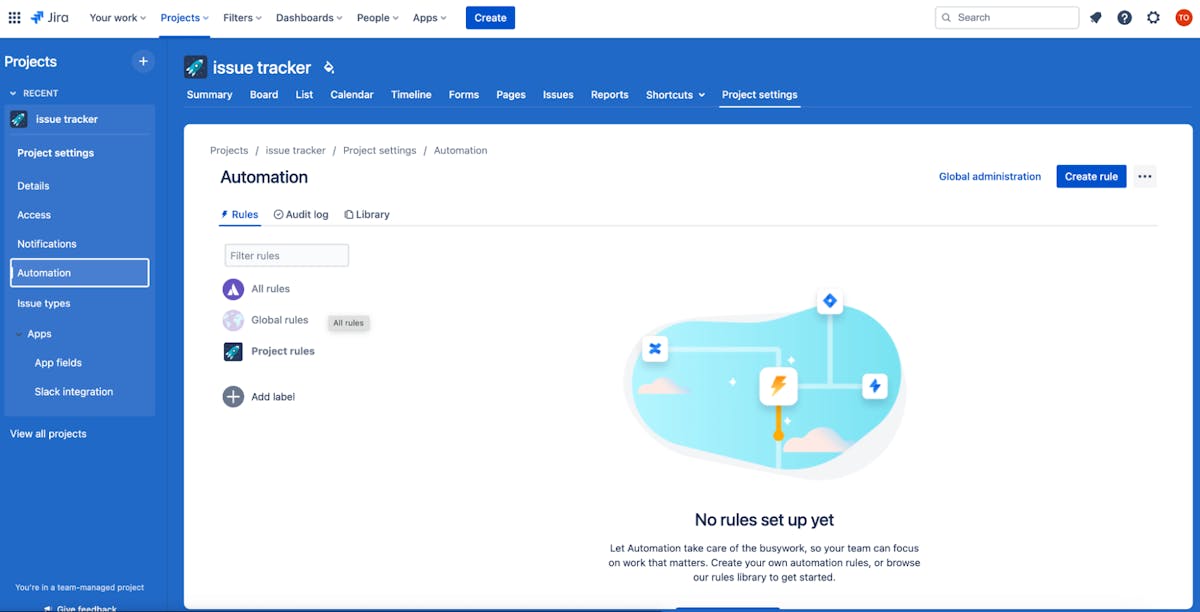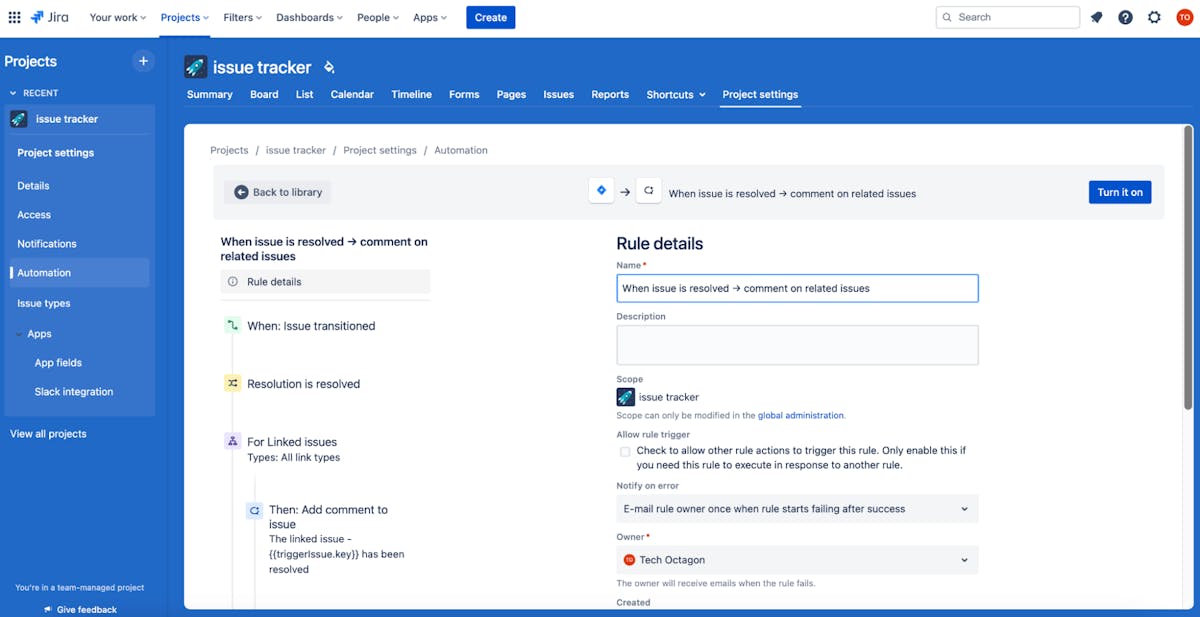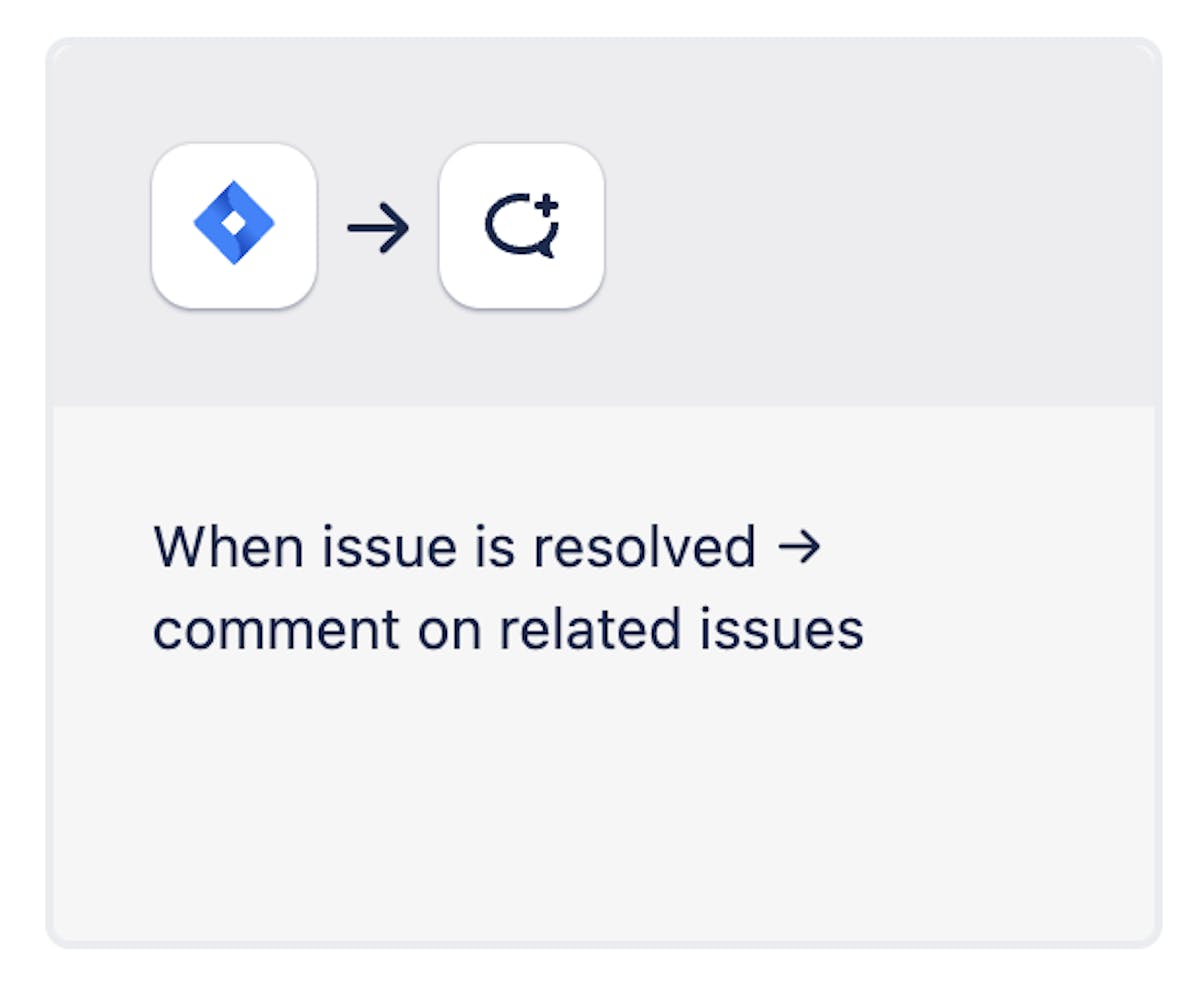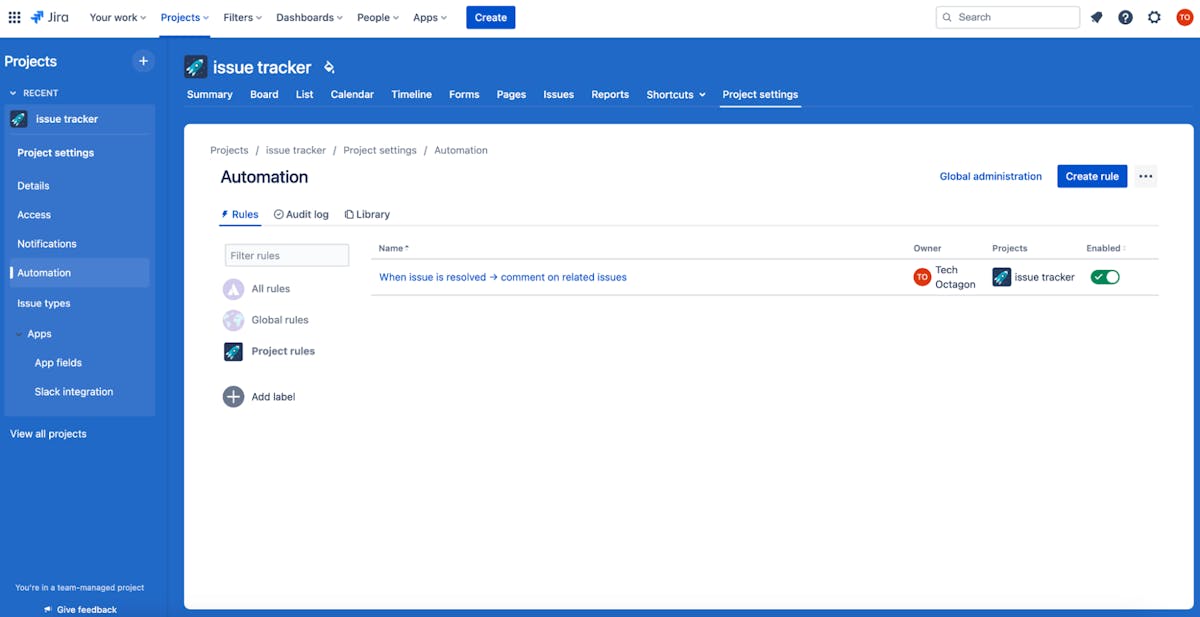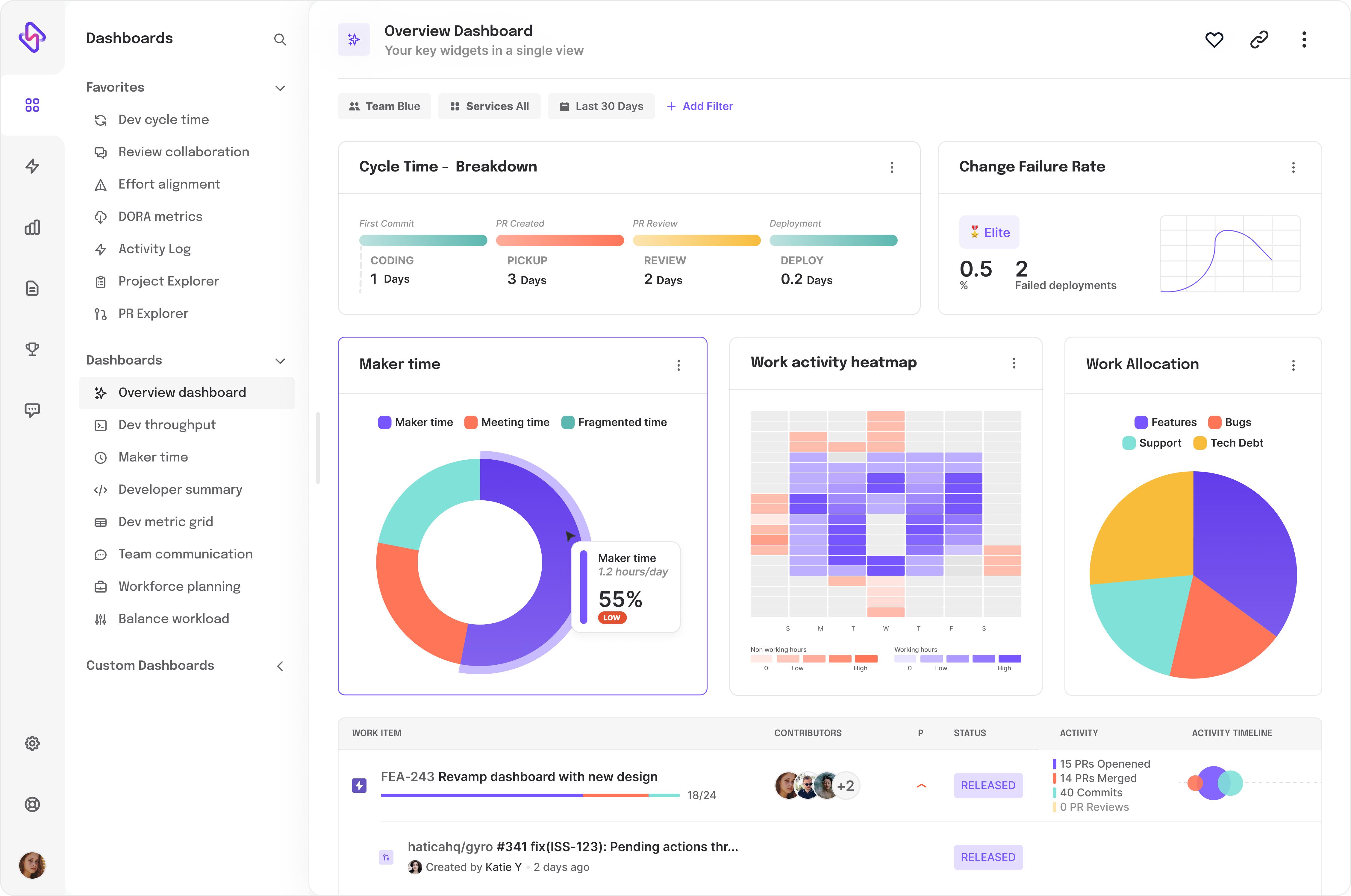GitHub is the world's largest platform for software development (currently owned by Microsoft), used by over 94 million+ developers and 4 million+ organizations worldwide. It allows developers to store and collaborate on projects and showcase their work. GitHub is built on top of Git, an open source version control system that helps developers manage and track changes to code by storing modifications in a central repository. This enables developers to easily work together on projects by storing and uploading new versions and viewing and contributing to changes made by others. In short, Git is a versatile version control system that developers widely use because of its ability to track changes to any file type and its robust features. GitHub, a platform built on top of Git, is popular among developers for its cloud nature, collaboration, and code-sharing capabilities.
Jira, on the other hand, is a project management (PM) tool developed by Atlassian that is widely used by engineers and software development teams. It allows teams to plan, track, and release software projects. Jira is known for its extensive features, including agile project management, bug/issue tracking, and custom reporting. It also integrates with various tools, such as GitHub, Git, Jenkins, Zendesk, BitBucket, Slack—and more, to enable effortless collaboration among team members. Jira is popular among developers and project managers for its ability to efficiently manage and track the progress of software development projects.
By integrating GitHub with Jira, developers can effortlessly connect their code repo with their Jira projects, enabling them to efficiently track and manage their work, all within a single platform. This integration can help teams stay organized, reduce friction, and enhance collaboration.
In this article, we will dive into the process of integrating GitHub with Jira from scratch and explore the benefits of this integration for software developers and engineering teams.
Benefits of GitHub Jira Integration
Before we delve into the integration process, let's explore some of the benefits to integrating GitHub with Jira:
1. Team collaboration:
By integrating GitHub and Jira, teams of software engineers and developers can more easily collaborate and streamline their workflows. This integration links their code repositories(on GitHub) with their Jira projects, providing visibility into the status of work and related issues parallelly within both platforms. As a result, they can easily access + track the information directly from their GitHub as well as Jira, improving efficiency and communication.
2. Better traceability:
Connecting a repository to a Jira project allows developers to view the status + progress of their work and related issues all in a single location, rather than switching between different platforms. This helps teams stay on top of their projects workflow and enhance productivity.
3. Streamlined workflow:
Integrating GitHub and Jira simplifies the process of tracking and managing tasks and issues for developers. They can link code commits to Jira issues and even create new issues directly from their code repositories (GitHub), saving time and streamlining their workflow. This helps engineers and software teams stay organized and focused on delivering only high-quality code.
4. Easy access to code:
Integrating GitHub and Jira provides developers with easy access to their code repositories all within a single platform, improving collaboration and project management. This allows developers to stay connected to their code and manage their projects more easily and efficiently without having to switch it up between multiple platforms.
5. Simplified report generation:
Integrating GitHub and Jira enables engineers and software teams to generate reports that combine data from both platforms. These reports can be super useful for tracking project progress + identifying areas for improvement, and making informed decisions based on that particular data. By leveraging the integration, teams can gain a more comprehensive understanding of their work and make better decisions that might drive the project's success.
Also, you can also check out our blog on GitHub features that you can use while integrating with Jira in detail here!
How to Set-Up Jira GitHub Integration?
To get started, you will need to have a Jira+ GitHub account. If you don't already have them, you can sign up for free at and create one.
Once you have both accounts, follow these steps to set up the GitHub-Jira integration:
- In Jira, navigate to the Settings page and click on the Applications tab.



